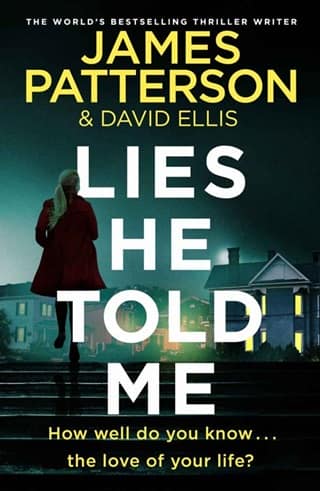THIRTY-NINE
THIRTY-NINE
WHEN I WALKED INTO the office of the senior partner, Howard Shimkus, fifteen years ago, I didn't realize that my legal career in Chicago was about to end. It was almost two weeks since the federal government had notified us of Silas Renfrow's death but only days since Howard and I had talked about it.
"Oh, good, the motion to dismiss?" he asked when I walked in holding a document in my hand. When I put it down on his desk, he took one look at it and immediately knew it wasn't the pleading he'd been expecting. "Jesus, Marcie, what are you doing?"
"Liam Herrin," I said, pointing at the printout of the online article I'd just handed him. "Escaped from a maximum-security prison in Northern Ireland in 1971. Lured a guard into a laundry shack, killed him, changed clothes with him, then set fire to the shack. Prison officials thought it was Herrin who died. By the time they learned otherwise, Herrin was long gone."
Howard kept a poker face, nodding carefully.
"That's what it means, Howard. ‘Pulling a Herrin.' He wasn't talking about a bird. He was talking about killing a prison guard and changing places with him. Escaping."
Howard was good. A trial lawyer of his experience was long adept at handling surprises, at holding still amid a hurricane. He brought his hands together in a steeple.
"That's why you were so upset when I mentioned that phrase," I said. "Because it means Silas Renfrow escaped —"
"We don't know that Silas did any such thing," he said, his voice a strange mixture of calm and aggression. "Do we? Do you have some special insight into what happened in that detention facility that no one else seems to have?"
I didn't, and he knew I didn't. I had no proof. What I had, however, was Howard's reaction that night when I mentioned Silas's Herrin reference, swearing me to secrecy, praying with all his might that I hadn't mentioned it to the FBI.
"To say nothing of the attorney-client privilege," said Howard. "Ever heard of that?"
"I've also heard of rule 11," I said. "Committing a fraud on the court."
"Whoa, whoa, whoa. Close that door. Close it." Howard got to his feet as I shut his office door.
"You're waiting for me to draft the motion to dismiss," I said. "We have to file a suggestion of death to get the criminal charges against Silas dropped. We have to tell the court in writing that he's dead. But he's not."
"We can say in writing that the government has informed us he's dead. We know that part's true." He seemed proud of himself for that very lawyerly distinction.
But inside, I felt something snap. I knew it then, as sure as I ever knew anything. Howard knew what Silas had done. He knew in advance what Silas was planning. That's why he didn't want to be around for any meetings with Silas, why he sent me instead, using his other trial as an excuse. He wanted to create as much distance from Silas as possible, so he could plead ignorance when it happened. And I was just a young associate who could be manipulated, bossed around if I became a problem.
"This firm doesn't sell out its clients," he said. "We get that reputation, we're as good as dead in the legal community."
"There's a difference," I countered, "between selling out a client and being part of the client's fraud."
Howard's face turned a shade of purple. He darted a finger in my direction. "I don't want to hear that word again from you. Get that motion to dismiss on file today. I don't even need to see it."
"I can't sign it," I said.
"Of course you can. It's the most routine of routine motions. It will be granted without any —"
"No," I said. "I mean I won't sign it. I'm not going to say he's dead. Because I no longer believe he is."
It felt like the ground was shaking beneath me. Howard let out a small chuckle, though he was far from amused. He mentioned something about my future at the firm, my future as a lawyer, but all that was now moot. I knew I could never work for Howard Shimkus again, and thus I was done at Millard Halloway. I'd flamed out at one of the top-tier Chicago law firms within a couple of years.
I could've made a big deal of this, I guess. I could have run to the ARDC, our attorney disciplinary commission, or gone to the FBI with my speculation. But it felt, suddenly, as if I were an alien on the planet they call the practice of law. I had to leave. I had to go somewhere else entirely — wipe the stink off myself and reboot.
I went home to HG. I needed a break, and my mother was quite ill. Three months became six, six became nine, and then she was in hospice care, waiting out the last months of her life from a hospital bed in her home. I mostly cared for her, caught up on light reading, and went for long runs along the Cotton River.
A little more than a year later, during one of those long runs along the river, I met another jogger.
His name was David Bowers.
 Fullepub
Fullepub 



